Emirates will really miss its business travellers and high flyers
More than any of its rivals, the Gulf carrier relied on luxury-conscious customers to fuel profits.
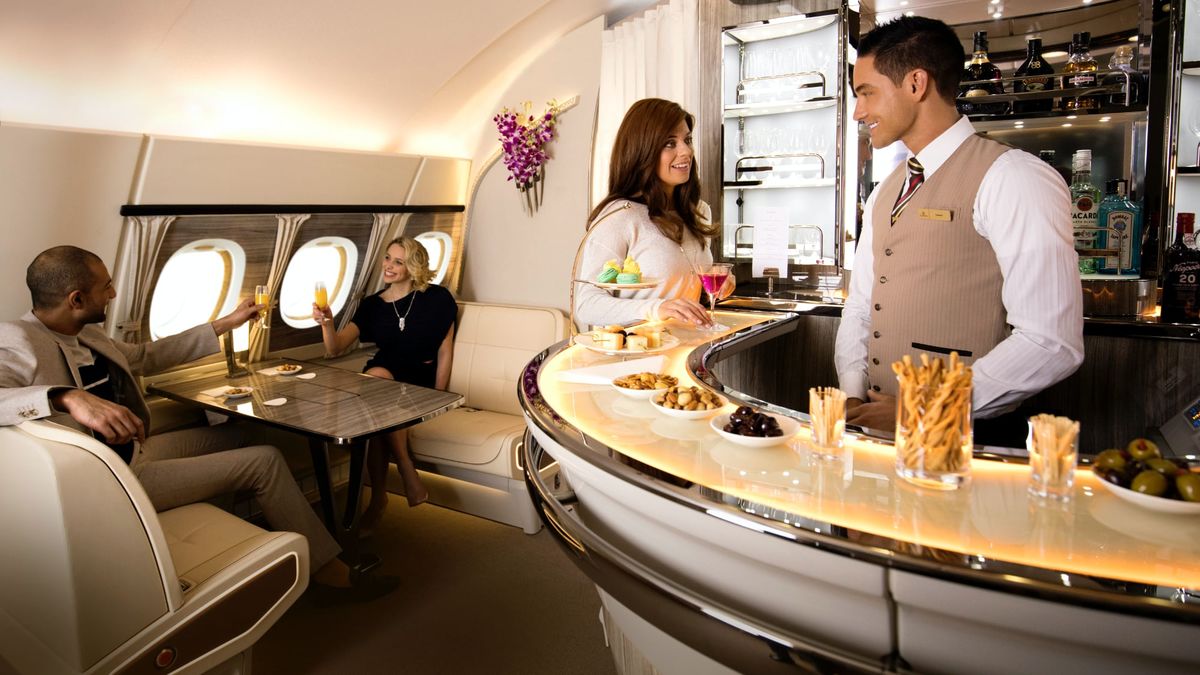
Until recently, Tarek Sultani Makhzoumi typically spent every other week of the year on the road, traveling from London to the U.S. or the United Arab Emirates.
Like many road warriors, Makhzoumi, chief operating officer for health-care technology company MAP Sciences, became accustomed to the perks of constant corporate travel – everything from restaurant-class in-flight meals to lay-flat beds in business or first class - on business-focused carriers including Emirates.
But in the era of shrunken corporate budgets and a growing embrace of videoconferences, such extravagances risk becoming relics of a globe-trotting past.
Moreover, many travelers are likely to remain reluctant to spend time in densely packed lines at airports, queue up at temperature-measuring checkpoints, or sit for hours in close proximity to strangers.
“The process of getting into a plane is going to be longer,” Makhzoumi says. “And I have to look into my cash flow more closely.” He plans to travel only “when it’s absolutely worth it” and pack more meetings into each trip when he does.
Future travellers will think twice
Any pullback among the bankers, consultants, and tech specialists like Makhzoumi who’ve long filled the front cabins of commercial airliners is bad news for carriers that cater to them. Especially Emirates, which boasts the world’s biggest long-haul fleet.
In particular, the Dubai-based carrier’s Airbus A380 double-decker – tt has 115 of the behemoths, making it the largest operator of the jumbo - celebrates the art of traveling in the style of a bygone jet era.
There are showers to refresh first-class passengers in airborne private suites, a stand-up bar at the rear of the upper deck where business-class passengers can mingle, and fine wines for premium-class flyers to wash down freshly prepared food. The airline spent €120 million on wine alone last year.
Read: Behind Emirates' extraordinary first class and business class wine lists and Behind the design and evolution of Emirates' Airbus A380 bar
Such extravagances may turn out to be a tough sell as companies try to return to business after Covid-19 lockdowns. Since many will face either slumps in demand or outright recession in key markets such as the U.S. and much of Europe, they’re likely to spend cautiously.
French bank Société Générale, for one, expects to cut corporate travel by 80%, according to a person familiar with the matter. One consequence: the International Air Transport Association estimates that airlines stand to lose $490 billion in revenue this year.
Emirates is especially vulnerable because its business model is skewed toward attracting high-fare passengers in the front of its planes to connect through its desert hub. That can be lucrative when business is flush.
Although premium cabin travelers account for just 10% of passengers industrywide, they represent 30% of revenue, says Brian Pearce, IATA’s chief economist.
“Filling up the aircraft at the back with passengers on economy seats covers the cost of the operation,” he says, “but it’s really the premium passengers that are the key to profitability.”
For U.S. domestic and European regional travel, a business-class traveler is at least one-third more profitable than an economy passenger, estimates Henry Harteveldt, a travel industry analyst at Atmosphere Research Group in San Francisco.
On long-haul flights, business-class customers are approximately five times more profitable than standard economy passengers, he says.
Emirates had been hugely successful at luring those premium passengers through its use of such amenities as free chauffeur-driven car service before and after flights – and access to cigar lounges – while easily charging three to five times the economy fare for a business-class seat and as much as double that for travel in first class.
Bad timing
Losing that lucrative line of business comes at an already challenging time. Emirates announced last year that President Tim Clark, the architect of its rise from regional outfit to globe-spanning behemoth, would retire in June. No successor has been named.
And the crash in the price of oil has depressed a big portion of travel tied to commodities - an important piece of business for any Middle East carrier. The airline declined to comment on its response to the challenging business environment.
Like every major airline around the world, Emirates has been forced by the coronavirus chaos to make deep cuts, idling as much as 90% of its aircraft, including its entire A380 fleet. It’s also slashed salaries and postponed the delivery of its final batch of A380 aircraft.
The future composition of the airline’s fleet looks unclear now that Airbus is ending production of the A380 next year, and production problems at Boeing could delay the introduction of the 777X, the new long-range jetliner of which Emirates has ordered 126.
An Emirates double-decker A380 typically accommodates 14 closed suites, 76 flat beds, and 399 standard seats, and the upper deck is dedicated exclusively to premium travel.
One option may be to fast-track introduction of the premium economy class product that Emirates had scheduled for the end of 2020, which requires reconfiguring the cabins. That could be the easiest course, given that the A380s are already sitting on the ground.
Other carriers, including Lufthansa and Cathay Pacific, have typically priced premium economy cabins – which have wider seats and more amenities than economy - at about half the price of business class.
So the less expensive premium service on Emirates might appeal to price-conscious businesses that otherwise would consider canceling some employee travel altogether. “If they have the manpower and hangar capacity to do retrofitting, they could use the time to make a more modest product,” says John Strickland, an independent aviation consultant at JLS Consulting in London.
Indeed, MAP Science’s Makhzoumi, once a loyal Emirates customer, says he’s shifted his flying to premium economy service—on Emirates rival British Airways, which already offers the less expensive cabin.
Read more: Here's everything we know so far about Emirates premium economy
This article is published under license from Bloomberg Media: the original article can be viewed here
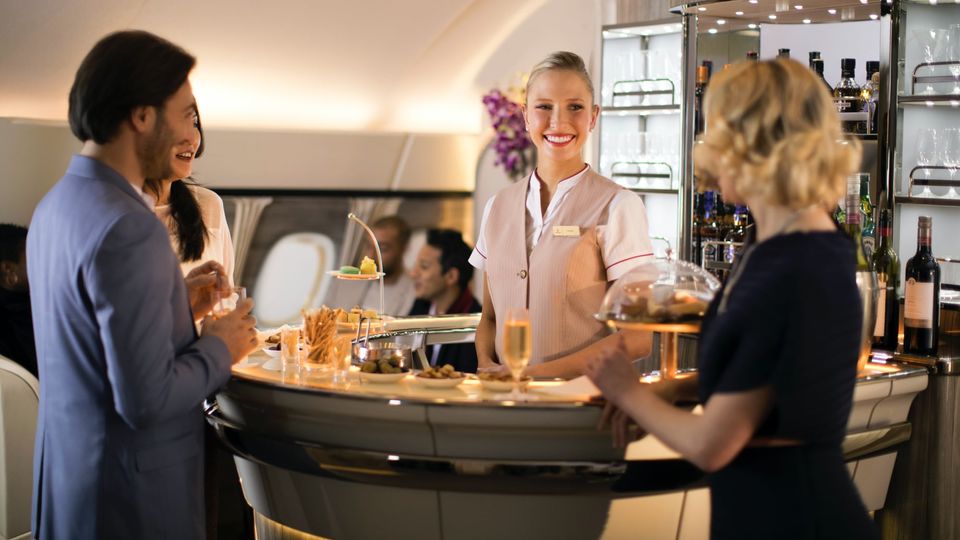

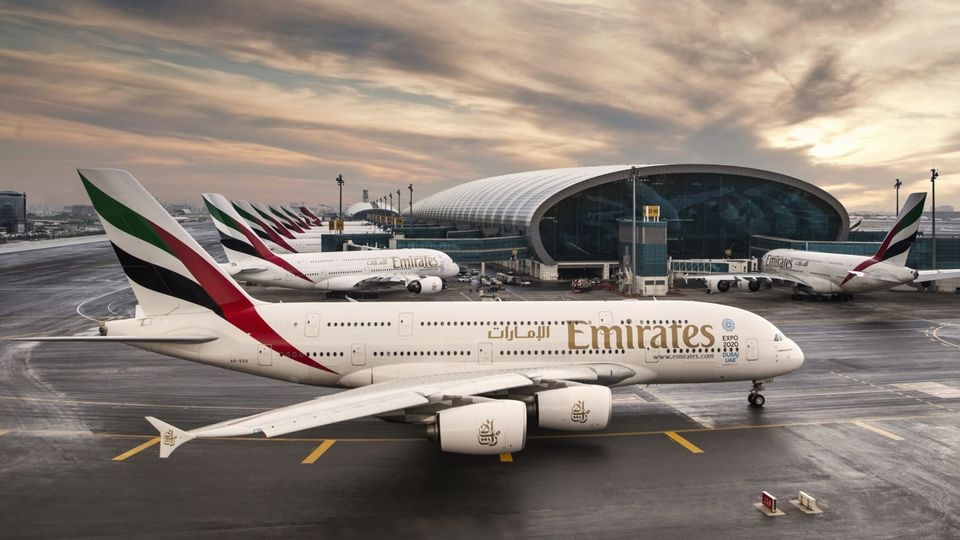
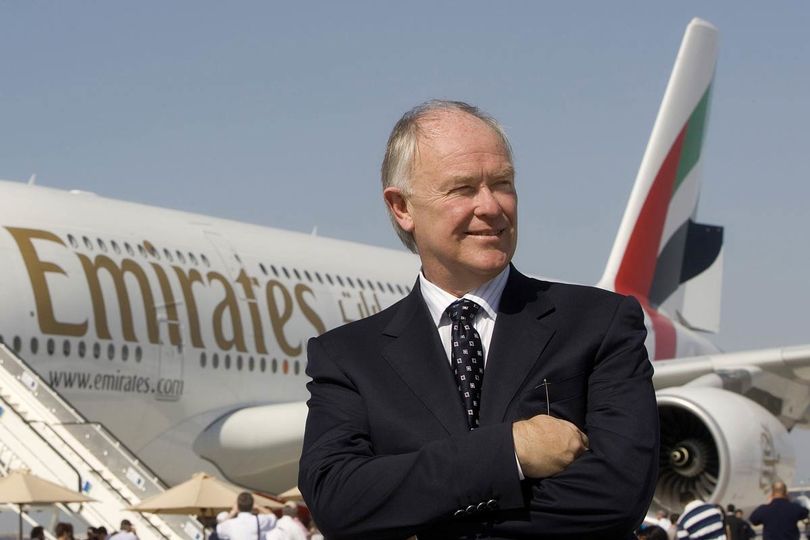
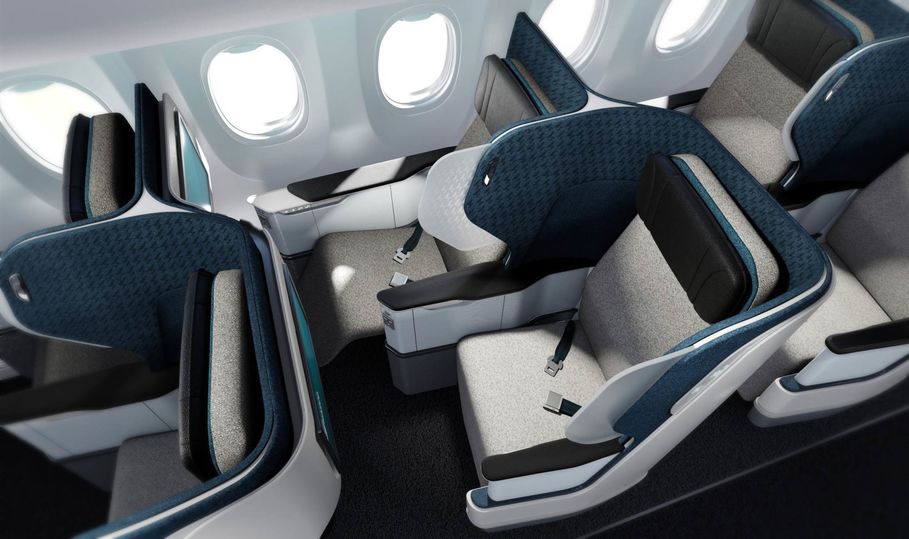
American Airlines - AAdvantage
13 Jul 2015
Total posts 276
Would be great if they took this as an oppurtunity to install their new First Class Cabin/Suites on a few A380's as well - but doubt that's going to happen - that's more of a super limited product.
Hi Guest, join in the discussion on Emirates will really miss its business travellers and high flyers